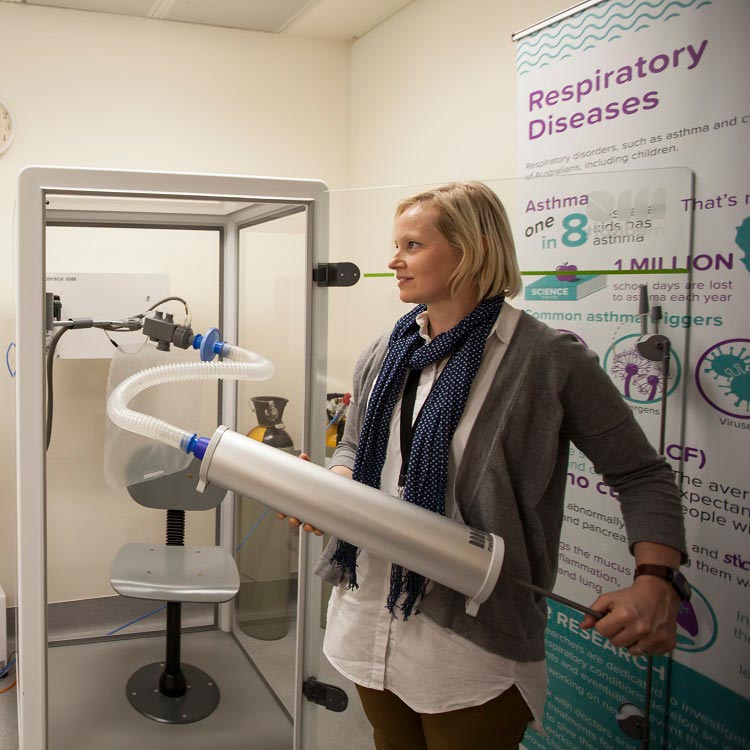Search
Research
Identifying SETBP1 haploinsufficiency molecular pathways to improve patient diagnosis using induced pluripotent stem cells and neural disease modellingSETBP1 Haploinsufficiency Disorder (SETBD) is characterised by mild to moderate intellectual disability, speech and language impairment, mild motor developmental delay, behavioural issues, hypotonia, mild facial dysmorphisms, and vision impairment. Despite a clear link between SETBP1 mutations and neurodevelopmental disorders the precise role of SETBP1 in neural development remains elusive.
Research
Treatment with inhaled aerosolised ethanol reduces viral load and potentiates macrophage responses in an established influenza mouse modelTreatment options for viral lung infections are currently limited. We aimed to explore the safety and efficacy of inhaled ethanol in an influenza-infection mouse model.
Research
Nasal airway epithelial repair after very preterm birthNasal epithelial cells from very preterm infants have a functional defect in their ability to repair beyond the first year of life, and failed repair may be associated with antenatal steroid exposure.
Research
Previous Influenza Infection Exacerbates Allergen Specific Response and Impairs Airway Barrier Integrity in Pre-Sensitized MiceIn this study we assessed the effects of antigen exposure in mice pre‐sensitized with allergen following viral infection on changes in lung function, cellular responses and tight junction expression.
Research
Biodiesel exhaust-induced cytotoxicity and proinflammatory mediator production in human airway epithelial cellsCanola biodiesel exhaust exposure elicits inflammation and reduces viability of human epithelial cell cultures in vitro when compared with ULSD exhaust exposure

News & Events
Very preterm babies at risk of declining lung function throughout childhoodA The Kids Research Institute Australia study published in The Lancet Child & Adolescent Health has found that survivors of very preterm birth face declining lung function
Research
Use of a primary epithelial cell screening tool to investigate phage therapy in cystic fibrosisThis study demonstrates the feasibility of utilizing pre-clinical in vitro culture models to screen therapeutic candidates
Research
The potential of antisense oligonucleotide therapies for inherited childhood lung diseasesAntisense oligonucleotides are an emerging therapeutic option to treat diseases with known genetic origin. In the age of personalised medicines, antisense oligonucleotides can sometimes be designed to target and bypass or overcome a patient's genetic mutation, in particular those lesions that compromise normal pre-mRNA processing. Antisense oligonucleotides can alter gene expression through a variety of mechanisms as determined by the chemistry and antisense oligomer design.
Research
Real world effectiveness of early ensitrelvir treatment in patients with SARS-CoV-2, a retrospective case seriesEnsitrelvir, a 3C-like protease inhibitor, received emergency approval in Japan in November 2022 for treating non-hospitalized patients with mild-to-moderate COVID-19. However, confirmation of its real-world clinical effectiveness is limited.
Research
Antenatal creatine supplementation reduces persistent fetal lung inflammation and oxidative stress in an ovine model of chorioamnionitisChorioamnionitis is a common antecedent of preterm birth and induces inflammation and oxidative stress in the fetal lungs. Reducing inflammation and oxidative stress in the fetal lungs may improve respiratory outcomes in preterm infants. Creatine is an organic acid with known anti-inflammatory and antioxidant properties.
